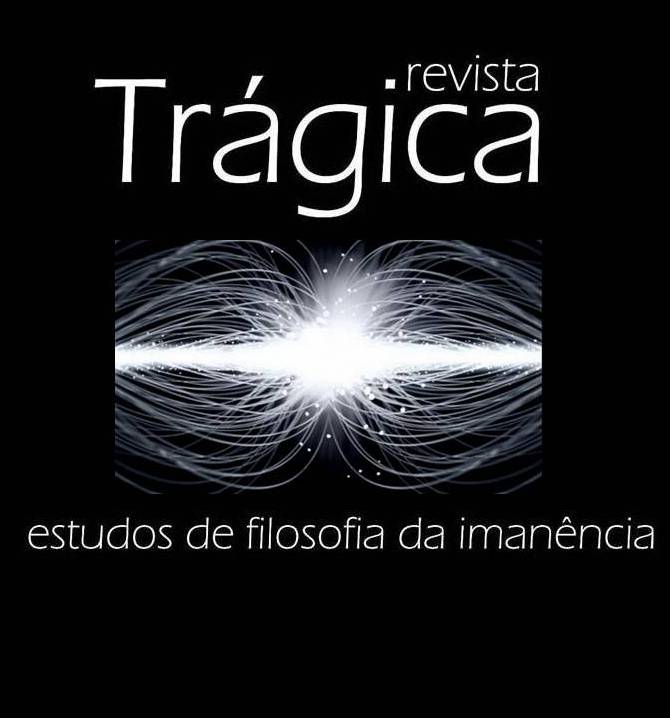LÍNGUA PURA E A LÍNGUA: um encontro (im)possível entre Benjamin e Lacan
DOI:
https://doi.org/10.59488/tragica.v9i2.26772Palavras-chave:
Nietzsche, SpinozaResumo
Este artigo tem por objetivo estabelecer uma aproximação, iniciativa ainda rara no campo filosófico e psicanalítico, entre o pensamento de Jacques Lacan e a Escola de Frankfurt, centrando a discussão nas concepções de língua e de linguagem presentes na obra de Walter Benjamin e na do psicanalista francês. Para tal, o autor se orienta pela leitura realizada por Agamben que destaca a ideia do surgimento da condição histórica do homem como sendo coincidente e inseparável do surgimento da significação na linguagem humana, no pensamento benjaminiano. A partir disso, é possível pensar, com Benjamin, outra linguagem, que ele propõe ora como anterior à história e à queda da linguagem no plano da significação, ora como posterior à história e, através desta, a ideia de uma “língua pura”. Seria possível, então, traçar um paralelo entre esta “língua pura”, benjaminiana, e a concepção de “letra” do pensamento de Lacan? Esta é a via aberta por este artigo.
This article has the purpose of establishing an approach – an initiative still rare in the philosophical and psychoanalytic fields – between the thought of Jacques Lacan and the Frankfurt School, focusing the discussion on the conceptions of language and idiom present in Walter Benjamin's and Lacan's works. To do it, the author will guide himself by Agamben's reading of Benjamin, which emphasizes the ideia of the origin of the historical condition of man as coinciding with and being inseparable from the emergence of signification in human language. From this, it will be possible to think with Benjamin about another language, which he sometimes proposes as something before history and language's fall into the realm of signification, and sometimes as subsequent to history – and through this, the idea of a “pure language”. Would it be possible, then, to draw a parallel between such “pure language” as put by Benjamin, and the conception of “Letter” in Lacan's thought? Such is the path opened up by this text.
Downloads
Downloads
Publicado
Edição
Seção
Licença
Autores mantêm os direitos autorais e concedem à revista o direito de primeira publicação, sendo o trabalho licenciado simultaneamente sob a licença Creative Commons Attribution 4.0 International (CC BY). Esta licença permite que terceiros remixem, adaptem e criem a partir do trabalho publicado, atribuindo o devido crédito de autoria e publicação inicial neste periódico. Os autores têm autorização para assumir contratos adicionais separadamente, para distribuição não exclusiva da versão do trabalho publicada neste periódico (por exemplo: publicar em repositório institucional, em site pessoal, publicar uma tradução ou como capítulo de livro), com reconhecimento de autoria e publicação inicial neste periódico.

















